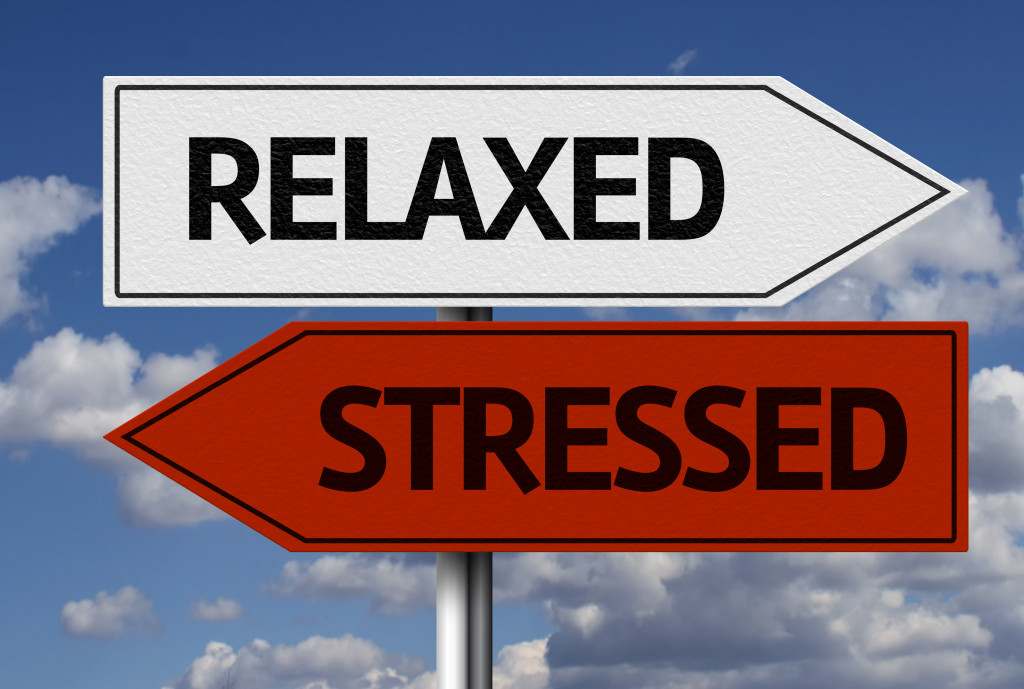Everyone grew up with books, and whether you were introduced to the countless academic textbooks in college or the wonderful novels you came across at a young age, we’ve all had our fair encounters with the literary world. For the most part, a large majority of people acknowledge the benefits of reading, especially since everyone’s well-regarded definition of books pertains to storing valuable knowledge and information. However, despite the millions of stories these pages hold, it is saddening that only a small minority find reading pleasurable.
Luckily, in contrast to the negative impacts brought about by the global pandemic, it has given more people the opportunity to pick up a book and start their reading journeys anew. And, while there’s still some resistance, it’s heartwarming to know there’s a newfound desire for reading burning in the hearts of many. So, today we’d like to touch base with the idea of reading for stress-relief, and whether it’s effective or a niche solution that only works on bookworms.
The Difference Between Recreational And Required Reading
A common trend we see behind people who don’t like reading books as much is because they relate reading to the traumatic experience of having to binge through chapters of textbooks and cramming so much knowledge in one night for tomorrow’s exam. And, while this activity does still fall under the scope of reading, we need to understand the difference between required and recreational reading. Wherein the former is reading out of necessity, and the latter is reading for entertainment.
- Intrinsic Motivation: Unlike required reading that relies on extrinsic motivational factors such as getting good remarks or preparing for a presentation, recreational reading relies on intrinsic motivation. And, as the name suggests, these come from within yourself, and you’re reading for your own interests and not anything else. In fact, it has been proven that recreational reading reduces stress in college students, and the key factor is personal drive.
- Explorative Vs. Objective: Required reading is objective by nature; you take mental notes of specific information, outline every lesson neatly, and undergo a rigorous review with a certain goal in mind. In contrast, recreational reading is explorative by nature, meaning that there’s no precise goal you’re striving for except for the opportunity to explore the story and put yourself in the shoes of the protagonist. Whereas required reading is born out of the need for better intellectual capacity, recreational reading is driven by personal curiosity.
A Few Points To Remember

Now that we’ve clarified reading’s ability to reduce stress and even enhance your empathy, here are a couple of things you need to remember to make your next reading session more fun and exciting. To read with the intention of stress relief requires you to know yourself better and understand your literary preferences, and the following points will help streamline your book choices and reading decisions.
#1 Discover Your Reading Tastes
Firstly, to know what books you’ll find interesting means to discover your reading tastes. While looking at best-selling authors and novels can be a place to start, this aisle isn’t always a guarantee that you’re going to love the story. And, since we’re talking about recreational reading, a lot of the factors are subjective by nature.
We recommend finding your genre first to help narrow down your options. Whether it’s a mystery, romance, comedy, or maybe even a touch of epic history, it’s all up to you. To go even deeper, you can also choose to read books that have some relevance in your life or current situation, like maybe self-help books to regain some balance or a coming of age story that you can relate to where you are right now in life.
#2 Ask Recommendations
Secondly, if you still find it troublesome and hectic to skim through so many books of different genres, it doesn’t hurt to ask for recommendations from other avid bookworms. In fact, you might already know a friend who’s quite the reader themselves, and we can assure you that they’ll be more than happy to drop some of their favorites.
You can also hop online and look through platforms like Goodreads and #bookstagram to find some public best books list or recommendations. You might even get to meet new people and join online reading communities that share challenges and insights on their recent reads.
#3 Read When It’s Appropriate For You
Last but not least, always remember that recreational reading means to read when it’s appropriate for you. If you know that you’re tired and burned out from a lot of physically demanding work, reading isn’t the solution; getting a luxurious massage therapy session is. So, only read when it doesn’t infringe on any of your other responsibilities, recreational reading should be fun, and the last thing you want to happen is to be stressed because you’ve been reading too much!
A Cup Of Tea Everyone Should Try
Overall, reading is an excellent stress-relief activity, and even if you had bad experiences with it before, it’s a cup of tea you should definitely give a second chance. So, feel free to use the guide above to begin your reading journey this 2021 anew.
